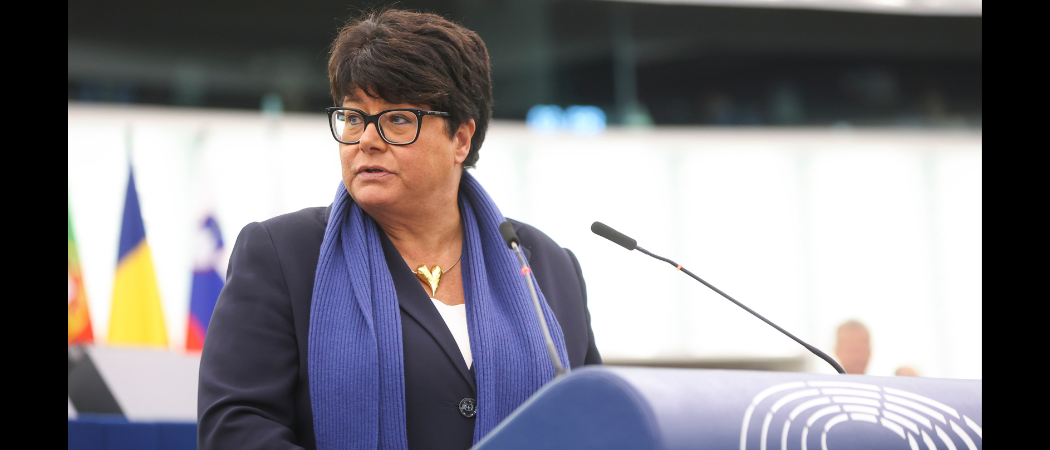Voluntary initiatives have failed to ensure mutual recognition of qualifications across the EU. MEPs should be given greater authority to set quality standards and promote seamless mobility of students, says Sabine Verheyen MEP, chair of the education committee

Sabine Verheyen MEP, chair of the Parliament’s Committee on Culture and Education. Photo: Fred Marvaux / European Union
MEPs are pushing for the EU to have shared competence with member states on education, in a bid to further mutual recognition of university degrees and to safeguard academic freedom.
This is an ambitious attempt by the Parliament to have greater say in education, for which member states currently have sole legislative responsibility under the subsidiarity principle. If it had a shared competence, the EU would be able to adopt legally binding acts that would ensure recognition of school or university qualifications for students studying in another member state and make it more straightforward to run joint degrees or PhD programmes in two or more countries.
“We want to have a minimum quality standard throughout Europe to make it easier to have vice versa recognition of learning or study results,” Sabine Verheyen, chair of the Parliament’s Committee on Culture and Education, told Science|Business.
The Bologna Process, launched in 1999 to promote the development of a single European Education area has supported some level of mutual recognition of university degrees, but is a voluntary initiative.
“What we see at the moment, also with the Bologna Process, is that you have some universities that do not accept the credits that you earn in another university. There’s always the argument that the other university’s standards are not quality enough. We want to fix that,” said Verheyen
Similarly, the European Universities scheme, launched in 2017, aims to create networks of universities, making it easier to cooperate on research and mobility of students and staff. But again the initiative is voluntary and progress has been limited, said Verheyen.
A hard sell
“It’s now been six years since the Gothenburg Social Summit and [the endorsement] of the European Education Area, but not much has moved on,” she said. “It’s because things cannot be done just on a voluntary basis, there must be coordination and responsibility at a European level.”
However, Verheyen recognises that in going against the principle of subsidiarity, the proposal for the EU to have shared competence on education is going to be a hard sell. “I know that many member states and also some of my colleagues are crying out loud when they read [this proposal] and they say it is against subsidiarity,” she said.
But Verheyen is adamant that the EU having shared competence will not infringe on member states’ control over education. “We don't want to go into each and every curriculum and say you have to do this or that. We want diversity, we are fighting for diversity,” she said.
“But what we want is that the result of an individual’s education must somehow be comparable in another member state.”
The proposal for the EU to have shared competence in education is one of a number of measures set out by MEPs to reform EU treaties that are aimed at giving the Parliament more authority. This includes making Parliament co-legislator with the Council on the EU’s long-term budget. The proposal will be voted on by MEPs next week.
Academic freedom
Shared competence in education would also give the EU more influence over academic freedom at a time when there are growing concerns some member states are interfering with this right. A report written for the Parliament’s Panel for the Future of Science and Technology (STOA) in March found that there were “structural de facto violations of academic freedom” in Hungary, while there were several “incidents” of threats to academic freedom in other countries, including Poland.
“Taken together, these incidents confirm that the state of play of academic freedom in the EU ember states is eroding,” the report says.
This is why the EU needs to have greater legislative power to protect academic freedom, Verheyen said. “We saw that in Hungary, we saw that in Poland, that some studies were not supported anymore because [the universities] did something the government didn't like,” she said. “I think that it is necessary to have a safeguarding framework for academic freedom coming from the European level because we see that not all the member states are guaranteeing that adequately.”
Shared competence in education would mean there are stronger mechanisms to deal with breaches of academic freedom. “Sometimes, the same people who claim subsidiarity over education also ask me what I am going to do to solve the situation in Hungary or Poland. Well, in truth we cannot do anything because we don’t have the competence, and not in the sense that we are not able to do something, but that we don’t have the right to do something,” said Verheyen.





 A unique international forum for public research organisations and companies to connect their external engagement with strategic interests around their R&D system.
A unique international forum for public research organisations and companies to connect their external engagement with strategic interests around their R&D system.